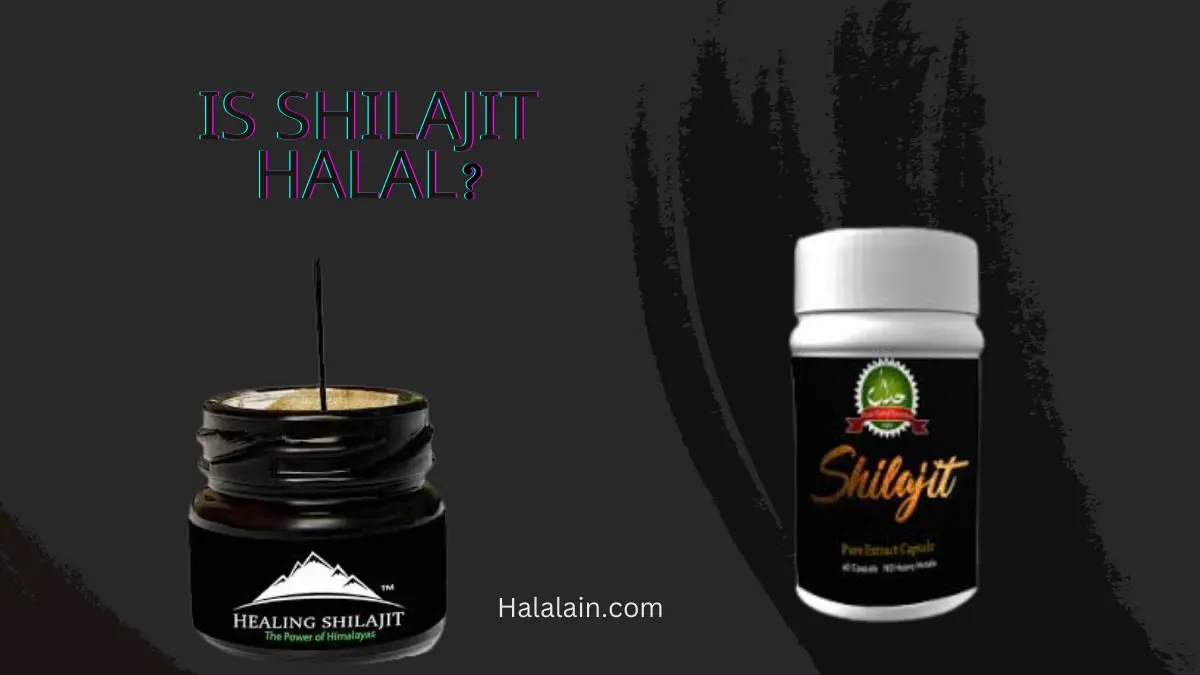The pursuit of health and wellness often leads us to explore various natural supplements that promise a myriad of benefits. One such supplement that has gained significant popularity is Shilajit. Known for its potential to enhance vitality, boost energy levels, and improve overall health, Shilajit has been used in traditional medicine for centuries. However, for those who follow a halal diet, a crucial question arises: is Shilajit halal? In this comprehensive blog post, we will delve into this question, examining the origins and ingredients of Shilajit, analyzing its halal status, referencing Quran and Hadith, considering scholarly opinions, and exploring possible substitutes for those seeking halal alternatives.
Introduction of Shilajit
Shilajit is a sticky, tar-like substance that is primarily found in the rocks of the Himalayas, Altai Mountains, and other high mountain ranges. It is formed over centuries by the gradual decomposition of plants by microorganisms. Traditionally used in Ayurvedic medicine, Shilajit is praised for its potential to enhance physical and mental performance, support healthy aging, and provide a range of other health benefits. It contains a rich blend of minerals, fulvic acid, and humic acid, which contribute to its reputed health benefits.
Is Shilajit a Halal Ingredient?
To determine whether Shilajit is halal, we need to understand its origins and composition. Shilajit is a natural substance that comes from the earth and is not derived from animals. Its formation involves the breakdown of organic matter over a long period, resulting in a mineral-rich compound. Given its natural origins and the absence of any haram (forbidden) substances in its composition, Shilajit can be considered halal in its pure form.
Is Shilajit Halal?
Yes Shilajit is Halal. The concept of halal in Islam refers to what is permissible or lawful according to Islamic law. For a substance to be considered halal, it must not contain any ingredients that are explicitly forbidden, such as pork or alcohol, and must not come into contact with haram substances during its processing or packaging. Shilajit, being a natural substance derived from plant matter, does not inherently contain any haram ingredients. Therefore, in its pure, unadulterated form, Shilajit is considered halal.
Ingredients Analysis of Shilajit
Shilajit is a complex mixture of organic and inorganic compounds. The primary components of Shilajit include:
- Fulvic Acid: This is a type of humic substance that contributes to the bioavailability of minerals and other nutrients in Shilajit. Fulvic acid is derived from plant matter and is considered halal.
- Humic Acid: Another humic substance, humic acid is also derived from plant matter and is considered halal.
- Minerals: Shilajit contains a wide range of minerals, including iron, magnesium, zinc, and copper. These minerals are naturally occurring and halal.
- Dibenzo Alpha Pyrones: These are antioxidant compounds found in Shilajit that contribute to its health benefits. They are derived from plant matter and are considered halal.
- Other Organic Compounds: Shilajit also contains various other organic compounds, all of which are derived from the decomposition of plant matter and are considered halal.
References to Quran and Hadith
The Quran and Hadith provide guidance on what is permissible (halal) and forbidden (haram) in Islam. Some relevant references include:
- Quran 2:168: “O mankind, eat from whatever is on earth [that is] lawful and good and do not follow the footsteps of Satan. Indeed, he is to you a clear enemy.”
- Quran 5:3: “Prohibited to you are dead animals, blood, the flesh of swine, and that which has been dedicated to other than Allah, and [those animals] killed by strangling or by a violent blow or by a head-long fall or by the goring of horns, and those from which a wild animal has eaten, except what you [are able to] slaughter [before its death], and those which are sacrificed on stone altars, and [prohibited is] that you seek decision through divining arrows. That is grave disobedience…”
- Hadith: The Prophet Muhammad (peace be upon him) said, “What is lawful is clear, and what is unlawful is clear, and between them are matters that are doubtful which many people do not know. Thus, he who avoids doubtful matters clears himself regarding his religion and his honor.” (Sahih al-Bukhari)
These references underscore the importance of ensuring that what we consume is lawful (halal) and pure (tayyib).
Opinions of Scholars
Islamic scholars often provide guidance on contemporary issues, including the consumption of various foods and supplements. Different scholars may have varying opinions based on their interpretations of Islamic law.
Many scholars agree that natural substances that do not contain any haram ingredients and are not contaminated with haram substances during processing are considered halal. Given that Shilajit is a natural substance derived from plant matter and does not inherently contain any haram ingredients, it is generally considered halal by most scholars.
For a definitive conclusion, consulting with knowledgeable Islamic scholars or halal certification bodies can provide additional assurance. Organizations like the Islamic Food and Nutrition Council of America (IFANCA) or the Halal Monitoring Committee (HMC) can offer valuable insights and certification for products like Shilajit.
How is Shilajit Halal?
To ensure that Shilajit is halal, the following steps can be taken:
- Source Verification: Ensure that the Shilajit is sourced from reputable suppliers who adhere to halal guidelines and do not mix the substance with any haram ingredients during processing.
- Processing and Packaging: Verify that the processing and packaging facilities follow halal standards, ensuring no cross-contamination with haram substances.
- Halal Certification: Look for halal certification from recognized halal certification bodies. This certification provides assurance that the product has been thoroughly vetted and meets halal standards.
By following these steps, consumers can be confident that the Shilajit they are consuming is indeed halal.
Shilajit Substitutes
For those who prefer to avoid Shilajit due to uncertainty or personal preference, there are several natural and halal-certified alternatives that can provide similar health benefits:
- Ashwagandha: An adaptogenic herb used in traditional medicine to enhance vitality and reduce stress. It is plant-based and halal.
- Ginseng: Another adaptogenic herb known for its energy-boosting and anti-fatigue properties. It is also plant-based and halal.
- Maca Root: A root vegetable that is often used to enhance energy, stamina, and overall health. It is plant-based and halal.
- Spirulina: A nutrient-dense algae that provides a rich source of vitamins, minerals, and antioxidants. It is plant-based and halal.
- Halal-Certified Multivitamins: These supplements are specifically formulated to meet halal standards and can provide a broad range of nutrients to support overall health.
Summary
Shilajit is a natural substance with a long history of use in traditional medicine for its potential health benefits. Given its origins and composition, Shilajit is considered halal in its pure form, as it does not contain any haram ingredients. However, to ensure that Shilajit remains halal, it is important to verify the source, processing, and packaging of the product, and look for halal certification from reputable bodies. For those seeking alternatives, there are several plant-based and halal-certified supplements that can provide similar benefits. By making informed choices, consumers can enjoy the health benefits of natural supplements while adhering to their dietary guidelines.
Frequently Asked Questions
Q1: What is Shilajit?
A1: Shilajit is a sticky, tar-like substance found in the rocks of high mountain ranges, formed by the gradual decomposition of plants by microorganisms over centuries. It is known for its potential health benefits.
Q2: Is Shilajit halal?
A2: In its pure, unadulterated form, Shilajit is considered halal as it is a natural substance derived from plant matter and does not contain any haram ingredients.
Q3: How can I ensure the Shilajit I buy is halal?
A3: Verify the source, processing, and packaging of the product, and look for halal certification from recognized halal certification bodies.
Q4: Are there halal-certified Shilajit products?
A4: Yes, there are halal-certified Shilajit products available. Checking the packaging for halal certification or consulting halal food directories can help identify these products.
Q5: What are some alternatives to Shilajit?
A5: Alternatives to Shilajit include Ashwagandha, Ginseng, Maca Root, Spirulina, and halal-certified multivitamins, all of which are plant-based and halal.

